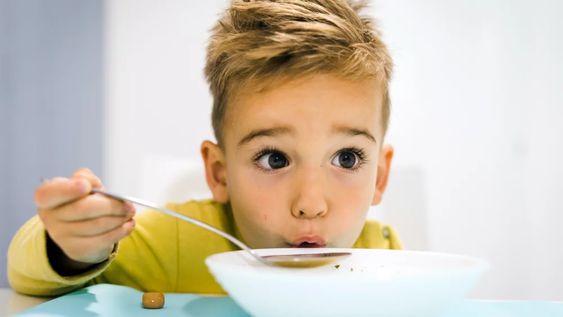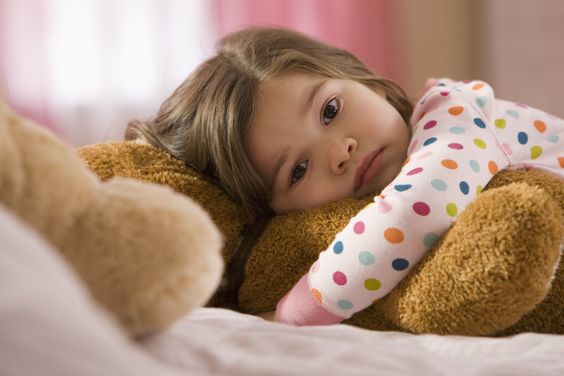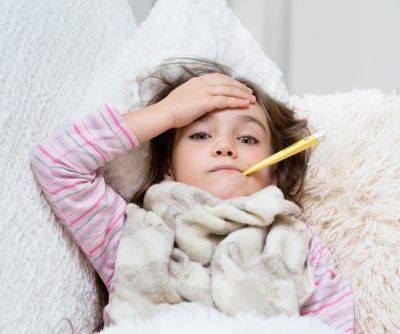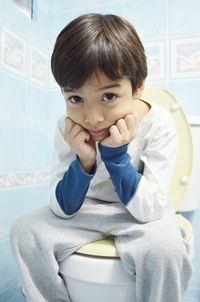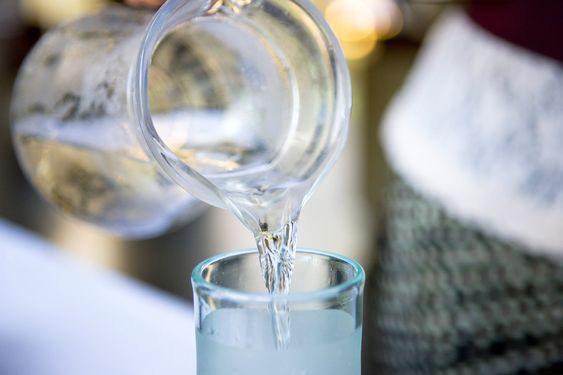Olidhealth.com – Sudden rain might appear while our child is playing with their friend. It makes them drenched and the following day they get sick such as fever and coughing. Early treatment such as giving them fever medication is good to countermeasure it. However, we also should provide them enough water as an essential need in children during fever.
The fever itself is commonly caused by infection or complication disease. Moreover, the lower immune system is also related to fever in children. This reaction is normal since the body tends to increase the temperature in order to kill bacteria and viruses that invest in their body.
Fever in children could be troublesome since the high-temperature condition would make a lot of sweat to lower it. In another word, they would need enough water to refill it. This condition commonly happens to our children and we need to treat them well to reduce its symptom. Why do children need enough water during fever? Here are some facts about bodily fluid in our child and how to refill it.
The Power Of Water
Adequate water is essential to keep children stay healthy. As time goes on, the amount of water needed is also increased because they use its important for their growth and developed body [1]. Moreover, enough water can help prevent other diseases to attack this body. In fact, there are other benefits of water that your child should have enough of it such as:
- Help in digesting our food.
- Improve muscle (especially in ligament and joint).
- Have the necessary function to produce saliva, tear, mucus, sweat, lining coating, urine, and stool.
- Help maintain function in the brain properly since water also contributes to the neurotransmission system.
- Control and regulate body temperature.
- Improve healing prosses in some diseases.
Prone To Have Dehydration
Fever can drain water faster since it induces sweat production. If your children don’t get enough water, it could lead to dehydration [2]. Here are the symptoms of dehydration you should know.
- Dry skin including dry eyes (sometimes redness) and mouth (especially in lips).
- Fast or irregular heartbeat.
- Tend less urination (in babies, would have fewer wet diapers).
- Yellow to dark orange color urine.
- Sometimes can affect tear production.
- Tiredness and weakness.
- Dizziness.
- Confused in some cases.
Providing them some watery food and drink may relieve fever and prevent dehydration to happen. you should check frequently their need during fever since they are prone to it.
More Sweat and Urination Would Get Over Fever
In fever conditions, sweating is needed as temperature regulation. Having low bodily fluid may affect this function and dehydration make it worse. High fever with more than 39 Celsius is bad in several ways such as being prone to have other diseases and signs of serious illness.
In medical terms, the body that is higher than 37.5 Celcius (99.5 in Fahrenheit) can make some protein denatured. It means protein production can be disturbed and may build mutated protein that bad for the body [3]. Abnormal temperature can make different arrangements of protein since the heat can affect the link between amino acids. In other words, it can be misplaced to make an unnecessary protein or even broken.
Good hydration could fasten the healing of fever in children. Moreover, adequate water can remove bacteria infection via sweat glands and urine. Sometimes a child with fever has more urge to pee since it can help regulate bodily fluid and flush out malicious substances at the same time. So, keeping their water needs to relieve the fever quickly.
Beware Common Diseases That Come Together With Fever Symptom
Fever in children is usually being followed by other symptoms that could worsen this disease. For example, wet cough with a lot of mucus and vomiting sometimes occur in some cases of fever. This symptom release more water that could lead to dehydration. Another disease that could be a serious problem such as diarrhea may deplete water content in their body. Encourage them to drink more water even they are not being thirsty.
Option To Make Them Have Enough of Water
Sometimes, we try our best to encourage them to take more water. However, they hardly have adequate water. To counter fever symptoms, we need other solutions to lure them with some improvised. There is some food that makes them enough water as follow:
- Juices – Blending their favorite fruit and adding some water to dilute it can lure them to drink it. You can also add honey to relieve cough symptoms caused by fever.
- Popsicle – Freezing some juice to make popsicles may reduce fever symptoms. It is also a good water source to make them enough water.
- Ice with boiled water – Some children are like to eat plain ice cubes and cracking sounds make sense of satisfaction for themself. You can make it with properly boiled water to secure its hygiene and prevent other diseases to come out.
- Broth – This food is also good to improve the curing of fever and replenish bodily fluid at the same time. Combining with some herbs can enrich the flavor and make it more healthy.
- Pedialyte (for babies and toddlers) – This item is an electrolyte fluid that needed to be consumed if your child is hard to take water. It contains essential minerals such as chloride, sodium, and potassium. You can find it in an apothecary or pharmacy.
- Salty food – If you have a grown-up child, this food could be added to their meal. It has minerals to help the body absorb more water to reduce fever.
- Foods with high electrolytes – Rich in potassium food such as avocado, spinach, and banana could maintain bodily fluid and prevent dehydration.
- Watery foods – These foods are also good to make sure your child gets enough water. Watermelon, cucamelon, cantaloupe, and cucumber are examples of food to prevent your child from thirstiness.
Food That Should Be Avoided During Fever
Although watery food is good to make them stay hydrated, there is also food that could worsen fever and make them susceptible to get dehydrate such as:
- Caffeinated drink – Some tea and coffee are water absorbers and make them more dehydrated. Avoid providing these drinks can reduce dehydration symptoms.
- Sports drink – Don’t use this drink to replenish bodily fluid in children with fever. It may have different kinds of nutrition in it. This drink is also not recommended to sicken children such as diarrhea and cough.
How Much Water Do Children Need To Stay Hydrated?
Some experts may have a different explanation about how much we need water. However, older age people need more water since they tend to lose water quickly. Water needs in adults and children are usually can be differed by gender, age, and activity.
Here are water needs in children in normal conditions (1 cup = 200-250 ml).
- 4 – 8 years old range children need 5 cups of water.
- 9 – 13 years old range children need 8 cups of water.
- 14 – 18 years old range children need 11 cups of water.
Encouraging them to have more water intake can keep their body stay hydrated and healthy. However, we can use a simple method to calculate their water intake. We can assume that children need water based on their age. For example, every 1 year needs 1 cup a day, and following year add 1 cup and so on.
If they get sick by fever or they do activities such as exercise and playing around can deplete bodily fluid faster and need more water than normal consumption. Ensuring water needs is important to keep their body’s function. Moreover, drinking water before and after sleeping is great since it could help the metabolism system during sleep time. We suggest taking a cup of water before or after a meal to smoothen the digestion tract.
Conclusion
During fever time, children are likely to have more sweat and release water by urine or stool. If this continues, it could be lead to dehydration and make other symptoms like dryness in the skin, tiredness, and weakness.
To prevent this happened, we should provide them with more water since fever can deplete bodily fluid quickly. Bring them some drink or food with high watery content that can refill their water needs. As for information, we should know adequate water that needs for our children by their age since its needs are an increase over time.
Fever is also related to cough and infection diseases. There is also a way to get rid of cough as a preventive measure if your child has this symptom. Reading this article may help you to know more about water needs to fight against fever disease.
Reference
[1] https://journals.plos.org/plosone/article?id=10.1371/journal.pone.0209054 – Benefit of drinking water in children
[2] https://www.ncbi.nlm.nih.gov/books/NBK436022/ – Dehydration in children
[3] https://www.ncbi.nlm.nih.gov/pmc/articles/PMC1783473/ – denaturation in high fever can lead to a serious problem



